advertisement
How to Add Hands-On Activities and Experiences to Your Homeschool is from contributing writer Kris Bales of Weird, Unsocialized Homeschoolers.
advertisement
The beginning of the school year is a lot like New Year’s Day. It feels like a clean slate, full of endless possibilities. All the plans are swirling in your head and you’re excited because this is finally going to be the year in which you do art lessons every week, teach your kids to bake, go to plays, take amazing field trips, complete incredible science projects, and enjoy hands-on fun with your kids every day.
Then, September or October roll around and you haven’t taken the paint supplies out of the art cabinet in weeks. The closest you’ve gotten to teaching your kids to bake is trip to the doughnut store. There is a science experiment in progress, but it’s that something in the back of your fridge that you can’t identify with a certainty.
Should you just throw in the towel now and resign yourself to another year of burnout?
No!
It doesn’t have to take an act of Congress to incorporate hands-on activities and fun learning experiences into your homeschool day. It just takes a little planning, a little (tiny!) bit of creativity, and a healthy dose of realism.
How to Add Hands-On Activities and Experiences to Your Homeschool
Plan
If you’re relying on spontaneity to bring more fun into your homeschool, you’re probably setting yourself up for failure. If I don’t plan in some of those fun things I want to do, they’re much less likely to happen.
Now, how you plan can be left open to your personality a bit. For some people, leaving one day a month open for field trips or special outings may be enough to make that happen. Say, for example, that I’ve left the third Friday of the month open for something special. That could mean a trip to the zoo, nature study at the local nature park, or a field trip related to something we’ve been studying.
Other people may need to have specific activities scheduled in for specific dates. If that’s you, I’d suggest penciling in specific outings by the school quarter. That way you can plan activities based on what you’re currently studying without stressing too much if your schedule takes an unexpected detour.
It it’s a craft-type project or a science experiment you’re planning, make sure you have all the supplies you need to complete the projects. It’s also not a bad idea to complete a trial run before presenting the craft or activity to your kids, but that’s more along the lines of “do as I say, not as I do.”
Be Realistic
Sometimes we make these grandiose plans, then, get overwhelmed and don’t do any of them. I’d rather plan one good project a week (or a month or a unit) than a bunch of mediocre ones. Don’t feel like every day – or even every week – has to have some elaborate, hands-on project. One project culminating what you’ve learned over the week or over the course of a particular unit of study can be a lot of fun.
Ideas for Hands-on Projects to Demonstrate Learning
- Cook a meal or one type of food from a state, country, or region you’ve been studying
- Create a map – salt-dough, paper mache, or cookie – of the area you’re learning about
- Keep a timeline over the course of your study, adding to it at the end of each day or week
- Create a model
- Sew a costume (which combines a project with another life skill)
- Play a game or maybe even make your own game
- Create a picture book or scrapbook
- Paint a picture
Know Yourself
Nearly every year, I think I’m going to include things like art and artist/composer studies in our homeschool. I have good intentions, but it never lasts long. This year, I may have figured out part of the problem.
I always think that we should either do things like art either Friday, our light day, or at the end of the day after everything else is done. A few weeks ago, I had an epiphany: we like our light Fridays. We don’t want to do a bunch of extras – even if they’re fun.
On top of that, I’m tired – mentally, physically, and emotionally – by the end of the school day most days. The extras that sounded so fun last weekend when I planned them, just sound like more work – work that isn’t a core subject and, therefore, expendable.
With that in mind, I started doing art and artist/composer study a couple of days a week (typically Tuesday and Thursday since those tend to be the days when we can afford the extra time) and I do this right after lunch – because I know I’m not going to blow off something like math or history, even if it means we’re finishing school later in the day than usual.
Share with Other Families
I’ve talked to several families who have pulled off highly successful hands-on activities – such as science labs, art/music co-ops, or nature studies – by partnering with other families. The accountability of having another family or two involved, along with the help in planning and executing the ideas can prove very helpful.
Play Games
Playing games is a simple way to add some hands-on fun to your homeschool. You can create homemade games such as bingo, Go Fish, or memory/matching to practice concepts such as:
- Vocabulary
- Math facts
- Alphabet recognition or upper case/lower case
- sight words
- letter sounds
- dates/events
You can also repurpose traditional board games to practice these and similar skills. Players roll the die and must answer questions/state facts before moving the number rolled. Alternately, they might have to answer the number of questions equal to their roll. For example, a child might read six sight words if he rolled a six.
Keep It Simple
If you’re anything like me, you’re more likely to skip things that are complicated. Hands-on activities don’t have to be super-involved to be effective. If choosing fun, simple activities is what it takes to get your kids engaged in hands-on learning, do it!
I offer dozens of hands-on learning ideas for kids of all ages and all subjects, plus printable resources, game ideas, and 10 full-color project tutorials in my ebook, Hands-On Learning.
What are your favorite ways to add hands-on learning to your days?
Other Posts You May Love:
Disclosure: This post contains affiliate links. They don’t change the price you pay. However, when you shop through them, the site may receive a small compensation. Thanks!
This post was originally published on August 15, 2012. It was most recently updated in December 2016.
Join 40,000+ Other Awesome People
Subscribe to the Real Life at Home weekly newsletter to get our latest content, exclusive free printables, learning activities, and ideas for celebrating with your kids all year
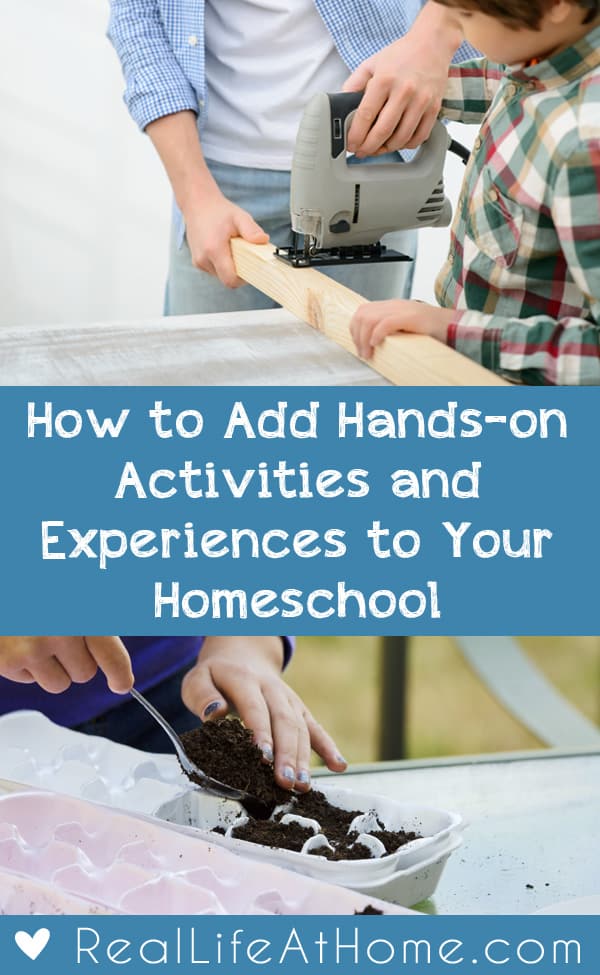
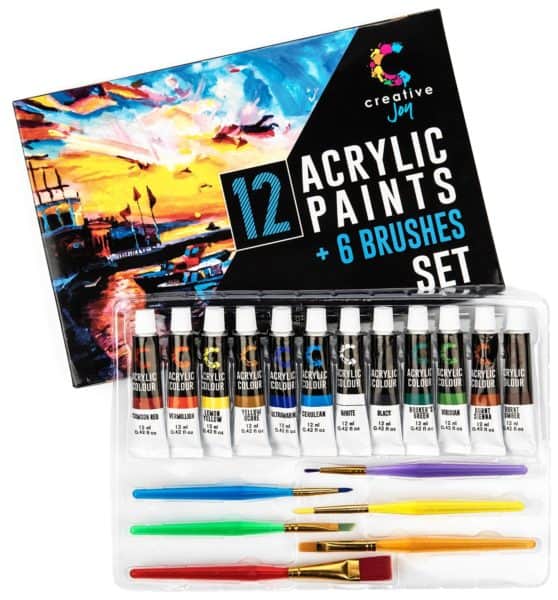
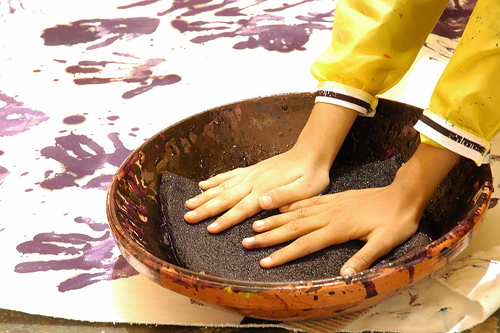
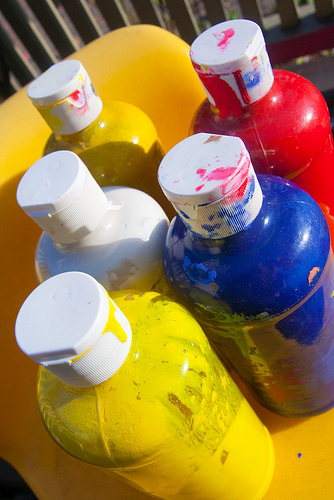
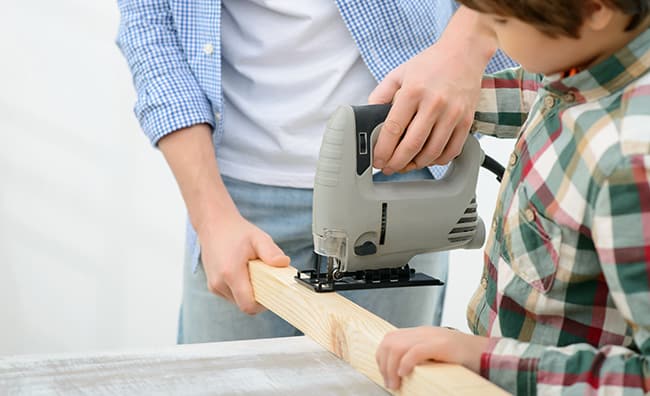
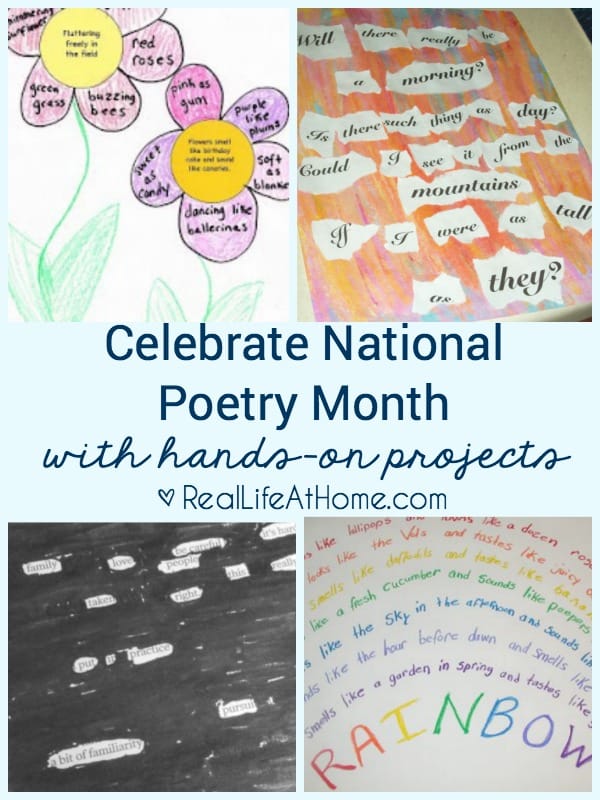

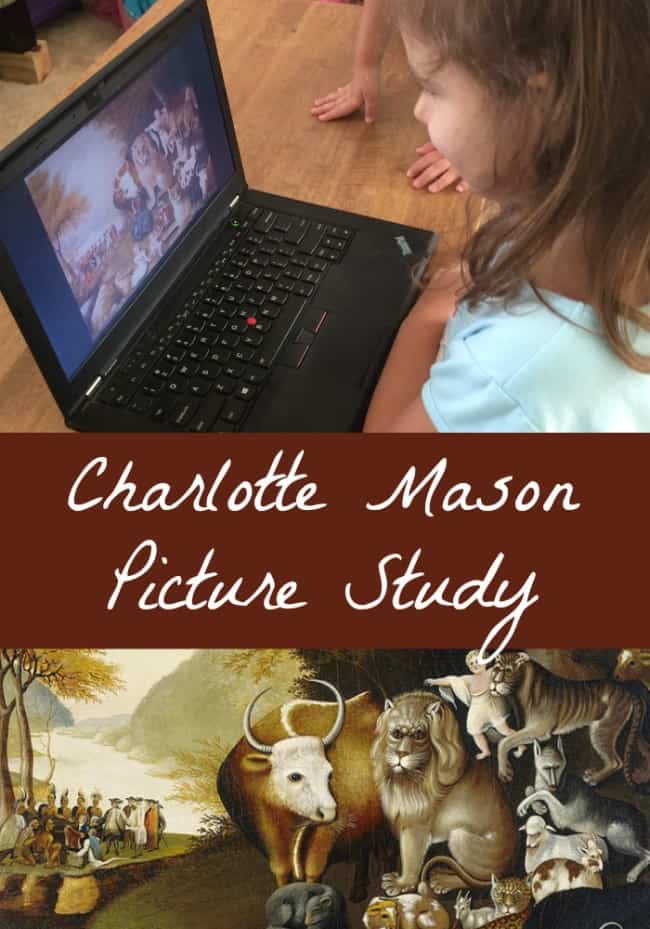
‘Know yourself ‘ is very true. Nobody can be creative, or lead creative activity when totally knackered. If you have too much in your timetable look at your timetable.
“Keep it simple.” – I love this.
Want a beautiful reminder that keeping things as simple as possible makes learning more fun.
Doing a “Lap book” is awesome. Research it and you’ll fall in love.